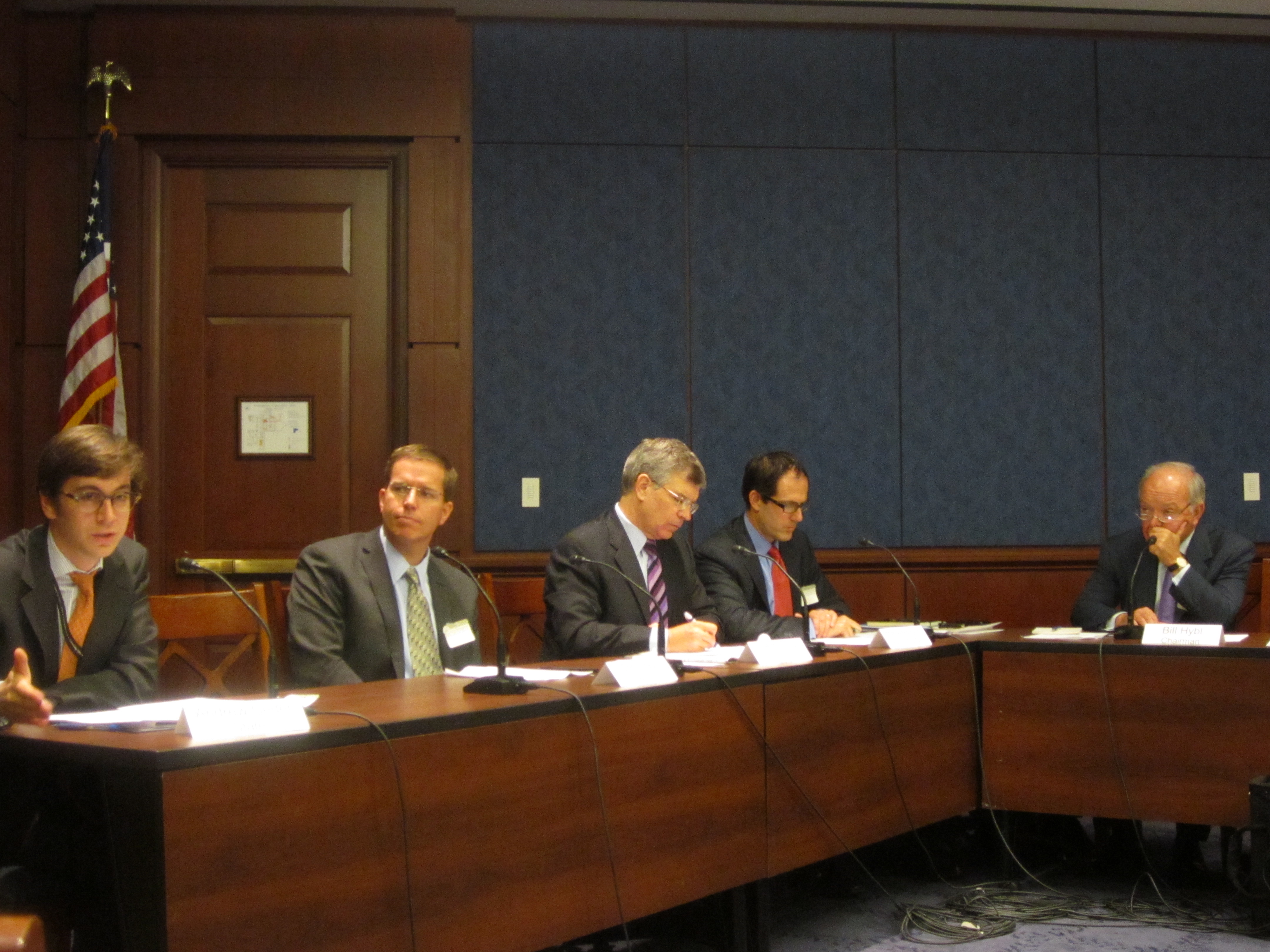I can recall my parents’ stern warning growing up that “ignorance is the enemy of change.” Yet the American public displays widespread ignorance regarding climate change, especially compared to the UK citizens I encountered...
KEEP READINGThe CPD Blog is intended to stimulate dialog among scholars and practitioners from around the world in the public diplomacy sphere. The opinions represented here are the authors' own and do not necessarily reflect CPD's views. For blogger guidelines, click here.
Reforming Smith-Mundt
APDS Blogger: Anna Dawson
On Tuesday, July 12, 2011, the U.S. Advisory Committee on Public Diplomacy held a public meeting in Washington, DC, to discuss the current state of the Smith-Mundt Act and funding public diplomacy. Much of the discussion centered on a proposed amendment in the Smith-Mundt Act to remove a “firewall” that currently prohibits any public diplomacy effort from the State Department or the Board of Broadcasting Governors (BBG) from reaching a domestic audience. The consensus among all members of the commission, and the conclusion that anyone can see from the given information, is that there needs to be an amendment to the Smith-Mundt Act to allow domestic audiences’ access to these broadcasts.
Executive Director Matt Armstrong gave a brief history of the Smith-Mundt Act at the beginning of the meeting to provide the audience-- which was open to the public, members and staff of Congress, the State Department, Defense Department, the media, and other governmental and nongovernmental organizations— with context in which to place the law. The United States Informational and Educational Exchange Act of 1948, more commonly known at the Smith-Mundt Act, institutionalized the Voice of America and specified how the U.S. government could engage in public diplomacy. It also essentially protected the practice of public diplomacy by the State Department and ensured its place within the government. When it was created, Congress added the “firewall” provision that the newly- created State Department could only broadcast outside of the U.S. due to mistrust of the new institution (which was “chock full of Reds” and “incompetents”). This geographical separation of the population within the U.S. versus the population outside of the U.S. was easily regulated due to short-wave radio broadcasts being the most advanced form of technology at the time.
As one audience member deftly summarized, it is good to learn from the past even as we transcend it. While we can see why the law was made 60 years ago, we also must realize that today, with a myriad of new technologies, the law does not make sense because one cannot easily separate domestic and foreign audiences. Today, every public diplomacy product from the State Department or the Broadcasting Board of Governors can only be made available within the U.S. by an act of Congress. However, as Jeff Trimble of the BBG stressed, due to the nature of the Internet, websites, Facebook pages and Twitter accounts from various BBG outlets are accessible to people within the United States. Technically, this is going against the Act and is “illegal”. When one looks at the differences in technology, it is easy to see that the Smith-Mundt Act is outdated and cannot adapt to today’s global communications.
The speakers gave numerous examples of areas where the Smith-Mundt Act has created problems that seem illogical. Jeff Trimble demonstrated that diaspora communities within the U.S. are an important missing audience. For example, the VOA cannot broadcast their Somali-language programs to a large Somali émigré community living in Minnesota because of the “firewall” provision. Similarly, after the Haiti earthquake, VOA proposed to have a Sirius radio channel in Haitian Creole, but its inadvertent transmission to a U.S. audience stopped efforts. These examples are missed opportunities of reaching an important potential audience due to this “firewall.”
 U.S. Advisory Committee on Public Diplomacy Discussing the Smith-Mundt Act
U.S. Advisory Committee on Public Diplomacy Discussing the Smith-Mundt Act
After listening to speakers from various backgrounds draw the same conclusion that the “firewall” provision is moot, I agree that the only viable option is to make amendments to the Smith-Mundt Act to keep up with the changing technologies and global communications. The provision that keeps domestic audiences from accessing U.S. international broadcasting is outdated and no longer relevant to a world where the line between domestic and international audiences is increasingly blurred. By adding this amendment, the Smith-Mundt Act can retain its purpose of protecting U.S. public diplomacy rights, while increasing efficiency of resources and coordination for international broadcasting across multiple organizations.
The speakers in attendance were Dr. Chris Paul of RAND Corporation; Andrew Cedar of the State Department Office of Public Diplomacy and Public Affairs; and Jeff Trimble of the BBG. The Commission members in attendance were Matt Armstrong, Executive Director; Bill Hybl, Chairman; Lyndon Olson, Vice Chairman; Penne Peacock, Commissioner; Lezlee Westine, Commissioner; and Sim Farar, Commissioner.
Anna Dawson is a Master of Public Diplomacy candidate and an incoming Senior Editor for USC’s Public Diplomacy Magazine. She is currently interning at the Center for International Private Enterprise in Washington, DC.
Visit CPD's Online Library
Explore CPD's vast online database featuring the latest books, articles, speeches and information on international organizations dedicated to public diplomacy.
POPULAR ARTICLES
-
January 29
-
January 20
-
January 28
-
January 2
-
January 8
Join the Conversation
Interested in contributing to the CPD Blog? We welcome your posts. Read our guidelines and find out how you can submit blogs and photo essays >.













